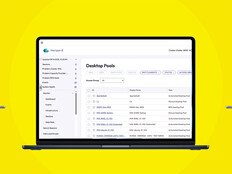How IT Staff Augmentation Works
This process allows small businesses to outsource talent to fill specific workflow gaps, complete projects and respond to business objectives fast. CDW works with Locus Recruiting, a Denver-based consulting firm, to find the ideal augmentation candidates that fit the required budget, skill sets and technology experience.
The Benefits of IT Augmentation
IT staff augmentation enables small businesses to access the skills and knowledge of certified technology professionals for a set period. Tech talent can be brought on to help with mission-critical projects, bolster cybersecurity or manage daily operational tasks while in-house staff conquers other projects. Here are some of the benefits:
Reduced IT costs: Since staffers are recruited for specific skills over set periods, IT leaders have more cost control. They can ensure that the employees they bring on have exactly the skill sets they need and stay only until specific tasks are complete.
Increased efficiency: Unlike full-time IT teams that are often spread thin in multiple directions, augmented staffers can focus solely on their areas of expertise, without having to transition between projects.
Enhanced scalability: As goals shift and grow, augmented staffing allows SMBs to scale simultaneously. Rather than waiting until new full-time staffers are recruited and onboarded, organizations can deploy the skills they need, when they need them.
Improved project management: Augmented staff helps unburden existing employees by taking on time- and resource-intensive tasks. This makes for more efficiently completed projects, particularly in teams where skilled automation and artificial intelligence also take on duplicative routine work.
RELATED: These small business solutions and services can help your organization.
Choosing the Right Kind of IT Staff Augmentation
When it comes to staff augmentation, there’s no one-size-fits-all strategy. Depending on your business needs and strategic goals, one kind of IT augmentation may prove more effective than another. Here are the different types:
Outsourcing: Small businesses can outsource IT tasks to third-party service providers. Outsourced staffers offer everything from administrative and help desk support to app development and cybersecurity management. Businesses may also choose to hire IT freelancers or contractors directly, or partner with local schools to bring in IT interns or apprentices.
Training support: Small businesses can also hire skilled IT professionals to train in-house staff. This approach can be especially useful if a company is transitioning to new systems or services.
Remote support: These professionals provide offsite troubleshooting and maintenance to help companies improve IT performance and cut costs.
IT consulting: Companies can work with IT consultants to develop and implement strategic technology plans, manage moments of transition and oversee special projects.
Finding Highly Skilled Staff Right Away
Working with a tech partner can help companies find the right augmentation approaches for their needs. It all starts with a call to a CDW specialist to assess your small business needs, the type of work, parameters of the project — such as location, duration and rate — and the specific skills required.
With a focus on information security, cloud computing, network and infrastructure staff, CDW can provide highly skilled workers that don’t break the bank.
This article is part of BizTech's AgilITy blog series.












